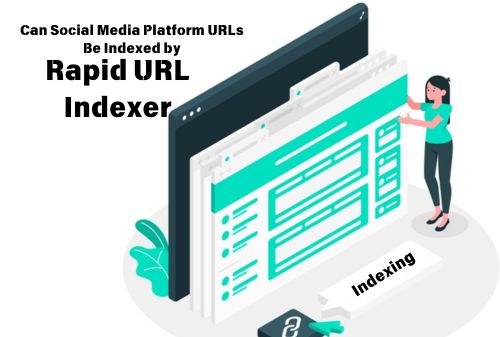In the world of SEO, rapid indexing of URLs is crucial for timely visibility in search engine results. Many digital marketers and website owners rely on tools like Rapid URL Indexer to speed up the process. However, one common question that arises is whether social media platform URLs can be effectively indexed using such tools.
Understanding URL Indexing
Search engines like Google, Bing, and Yahoo rely on crawling and indexing mechanisms to display relevant results to users. Indexing is the process where a search engine adds a webpage to its database, making it eligible to appear in search results. Tools like Rapid URL Indexer claim to expedite this process, reducing the waiting time for new or updated pages to be indexed.
Can Social Media URLs Be Indexed?
Social media URLs, such as posts, profiles, and comments, exist on platforms that often have noindex meta tags or restrictive robots.txt rules. These restrictions prevent search engines from crawling and indexing content freely. Here are key factors to consider:
- Platform Restrictions: Many social media platforms like Facebook, Instagram, and LinkedIn restrict search engine crawlers from indexing their content to maintain user privacy and platform exclusivity.
- Noindex Meta Tags: Social media posts and pages often include “noindex” tags that explicitly prevent search engines from adding them to their index.
- Login Requirements: Platforms that require user login (e.g., private Facebook groups or Twitter accounts with restricted visibility) further limit indexing possibilities.
- Canonical Tags: Some platforms use canonical tags to direct search engines toward a primary version of the content, often resulting in social media URLs not being indexed separately.
How Rapid URL Indexer Works
Rapid URL Indexer functions by submitting URLs to various indexing services and pinging search engine crawlers to accelerate indexing. While it can be effective for blogs, websites, and articles, its success with social media links is limited due to the aforementioned restrictions.
Alternative Methods for Social Media SEO
If indexing social media URLs directly is not feasible, there are alternative strategies to enhance their visibility:
- Publicly Accessible Content: Posting social media content on platforms like Twitter (public accounts) or Medium (which allows indexing) can increase chances of search engine discovery.
- Embedding Social Media Posts on Websites: If you embed a tweet, Facebook post, or Instagram post on your website, the search engine can index the page where it is embedded.
- Creating Backlinks to Social Media Content: If other websites link to your social media posts, it increases the likelihood of search engines discovering and indexing them.
- Optimizing Social Media Profiles: Instead of individual posts, optimizing profiles with keywords can help them appear in search engine results.
Conclusion: For “Can Social Media Platform URLs Be Indexed by Rapid URL Indexer?”
No, social media platform URLs generally cannot be effectively indexed by Rapid URL Indexer due to indexing restrictions such as noindex meta tags, login requirements, and platform policies. While Rapid URL Indexer and similar tools can speed up indexing for standard websites, they have limited effectiveness for social media platform URLs. To maximize search visibility, marketers should focus on alternative SEO strategies such as embedding posts, leveraging public content, and generating backlinks.
Would you like to explore more advanced SEO tactics for social media? Let us know your thoughts!
Read Also : What Are the Best Surfer SEO Alternatives in 2025?

